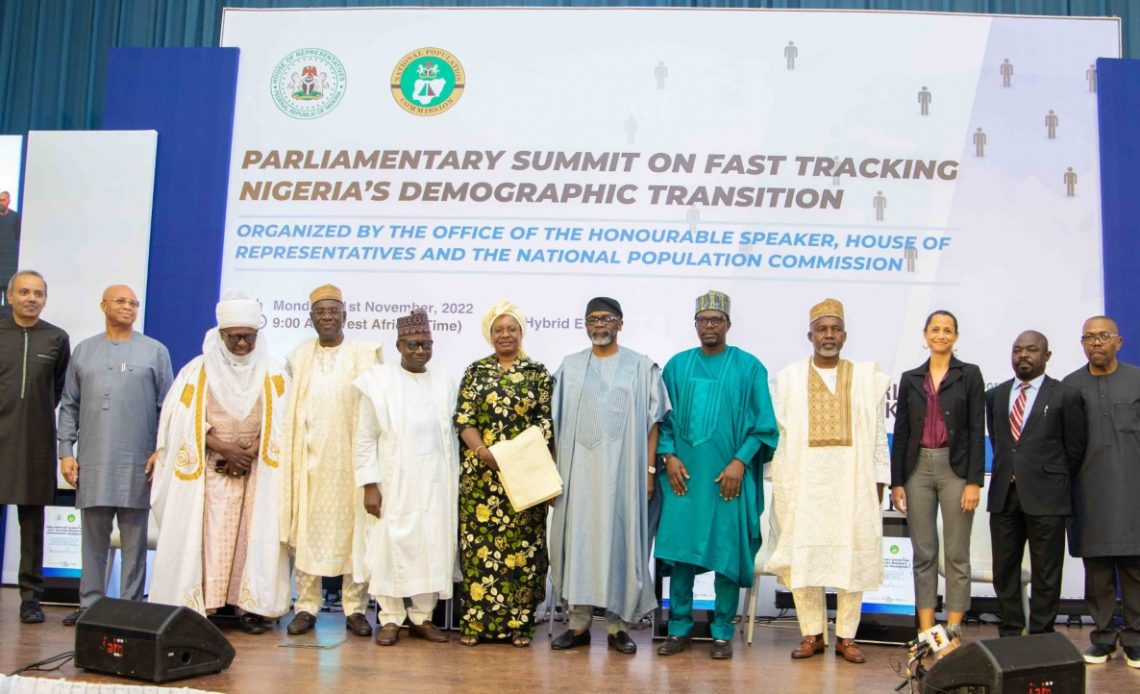A demographic dividend does not happen by accident, it requires a country to take deliberate and sustained action, which includes making the necessary investments and purposefully implementing the policies that would result in a decline in fertility and mortality levels. This, in turn, would create a demographic window of opportunity. A demographic transition occurs when mortality and fertility rates decline, and the proportion of working-age population increases relative to dependents.
Nigeria has been designated as a pre-dividend country, requiring strong commitment from the government, religious, political and traditional leaders as well as policymakers, to drive the country’s transition into a demographic dividend. Recognising parliamentarians at the national and state levels as a critical stakeholder group in achieving Nigeria’s demographic dividend ambitions, the Office of the Speaker of the House of Representatives, the National Population Commission (NPC), with support from the World Bank and stakeholders like Nigeria Health Watch, and the Legislative Initiative for Sustainable Development (LISDEL) organised a Parliamentary Summit on ‘Fast Tracking Nigeria’s Demographic Transition’.
Nigeria has a young population, which provides the country with limitless opportunities for growth and positive development. However, as of 2020, 42.5% of young people were not working and that number is rising. This has led to a high dependency ratio of 85%, a situation which can further weaken an already fragile economy. The high dependency on a working population that is getting smaller poses a real threat to reaping the demographic dividend that a youthful population provides.
Adolescents as a critical factor
Speaking at the event, Ulla Mueller, United Nations Population Fund (UNFPA) Nigeria Country Representative said, “Fast tracking demographic transition in Nigeria is critical, because we need to improve the quality of life for all citizens, particularly women and girls”. This is especially critical as adolescent girls have been identified as crucial to expediting Nigeria’s demographic transition.
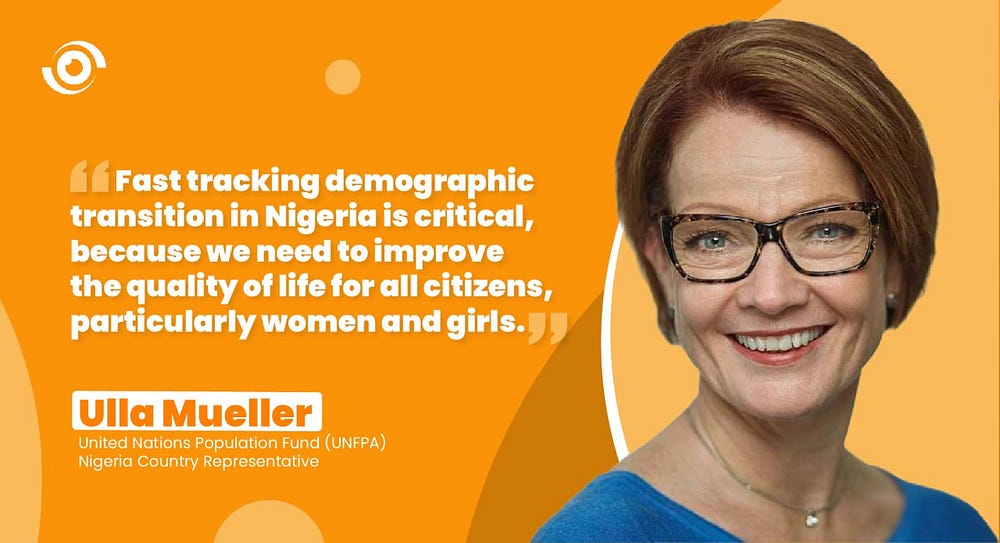
Adolescents made up an estimated 23 percent of Nigeria’s population in 2020 and are projected to represent more than 20 percent of the population by 2050. Nigeria’s adolescent fertility rate is high and has not recorded a significant decline in 50 years. Therefore, interventions which help delay childbearing and early marriage among adolescent girls and improve adolescent and child health can significantly contribute to fast tracking Nigeria’s demographic transition.
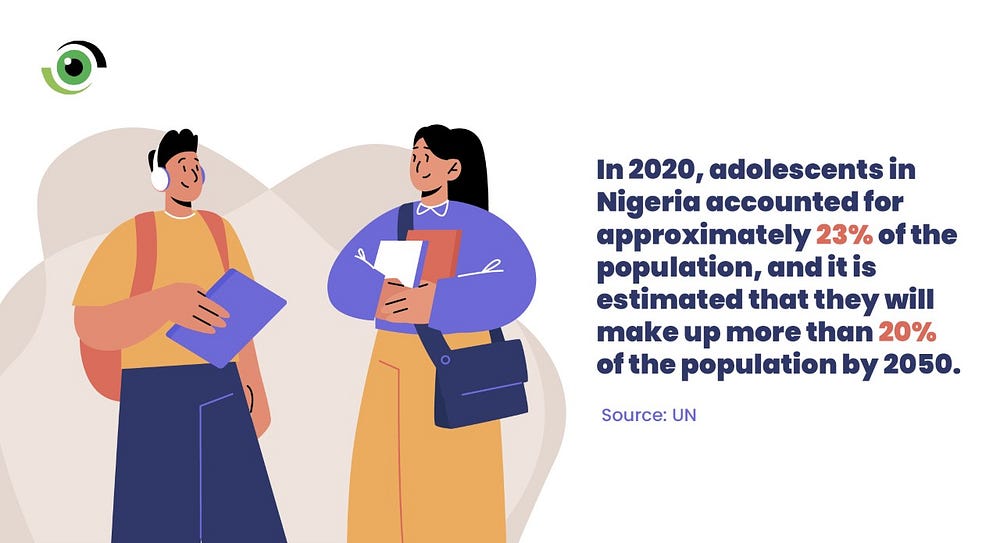
Family planning is perhaps the most important investment to be made in achieving demographic transition, and Ms. Mueller also noted that the fact that it is centrally positioned in Nigeria’s development plan is a step in the right direction. She praised Nigeria’s strong commitment to reach a contraceptive prevalence rate of 27% by 2024 and called on the government to facilitate the release of the approved 2021/22 budgetary commitment for family planning commodities that is still domiciled at the Central Bank of Nigeria.
Emir of Shonga in Kwara State, His Royal Highness, Haliru Yahaya, reiterated the importance of adolescent focused interventions as he stated that investing in the education and empowerment of adolescent girls in every community is needed to address the youth bulge. To achieve this, he added that it is important to get the understanding and buy-in of community leaders nationwide, which requires significant investment.
Making informed policy decisions
The NPC Chairman, Nasir Isa Kwarra said that to enjoy the benefits of Nigeria’s demography, the country must work towards enabling a population age structure where there are fewer dependents. “This achievement can only happen if Nigeria makes the right choices in adopting sound and targeted socioeconomic policies and interventions in key sectors such as education, health, women empowerment, job creation, decent employment, and is guided by good governance that is built on strong and responsive institutions”.
Mr. Kwarra also said that a population census is important for making good policy decisions because it gives important and up-to-date information that can be used to plan programmes, make investments, and do other things that will advance Nigeria’s prosperity prospects. “I implore the lawmakers to consider a population census a national priority in order to achieve significant demographic transition,” said Mr Kwarra.
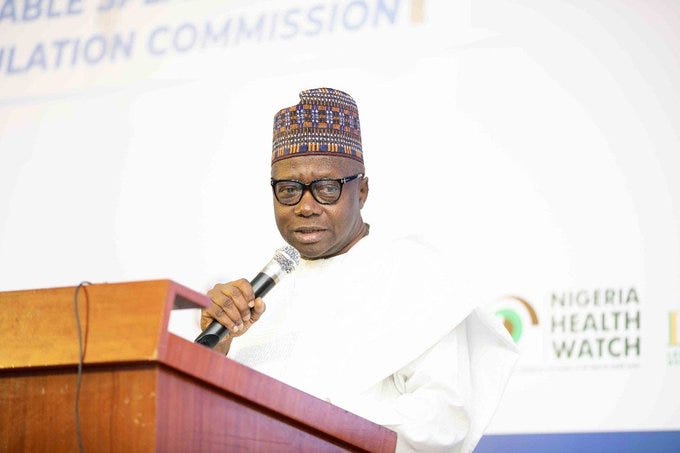
The role of legislators
The goal of the summit was to help policymakers understand the process of the demographic dividend and what is required to make a demographic transition, as well as their roles and responsibilities in supporting the demographic dividend agenda in all of its aspects. Aisha Dasgupta, who was representing the Development Director of the Foreign, Commonwealth, and Development Office (FCDO), said that lawmakers play a significant role in making sure that policies that could speed up the country’s demographic transition are put into place. “Government commitment to demographic transition at the highest levels is a critical ingredient, together with supportive policies across the sectors.” she said.
The Speaker of the House of Representatives, Honourable Femi Gbajabiamila, acknowledged the urgency for action regarding the country’s population explosion and the need for a census. “It has been 16 years since Nigeria’s last population and housing census, data about our population today is mainly based on projections and estimates, rather than actual census data. What we do know for sure is that Nigeria has a significant and growing youth bulge, and we also know that whether this fact turns out to be a good thing or tragedy for our nation, depends on the policy choices we make today and the actions we take,” he said.
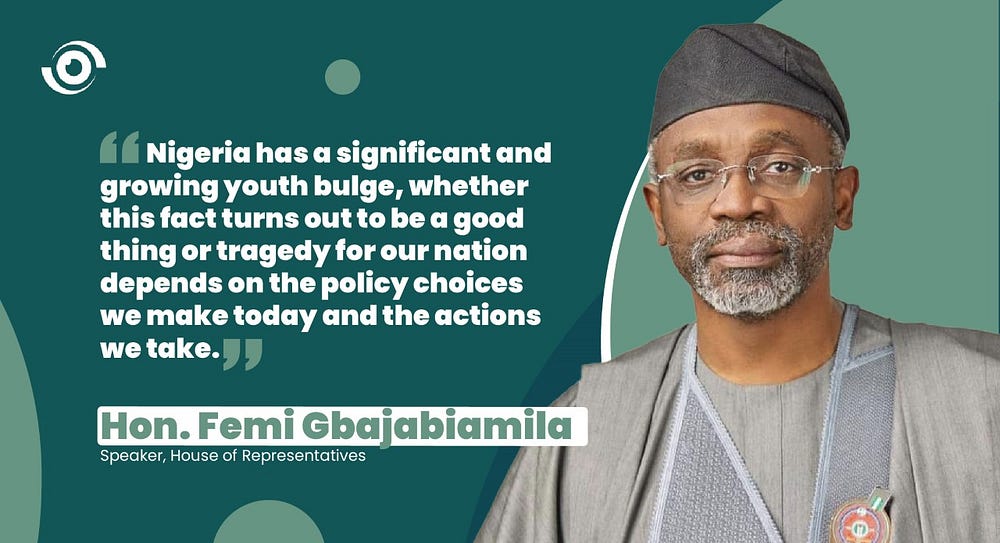
Next steps
Although different policy documents exist on harnessing the dividends of demography, implementation has remained a challenge. For countries like Nigeria, which has a high birth rate, it is very important that policies that lead to a fast demographic change get immediate and enough attention.
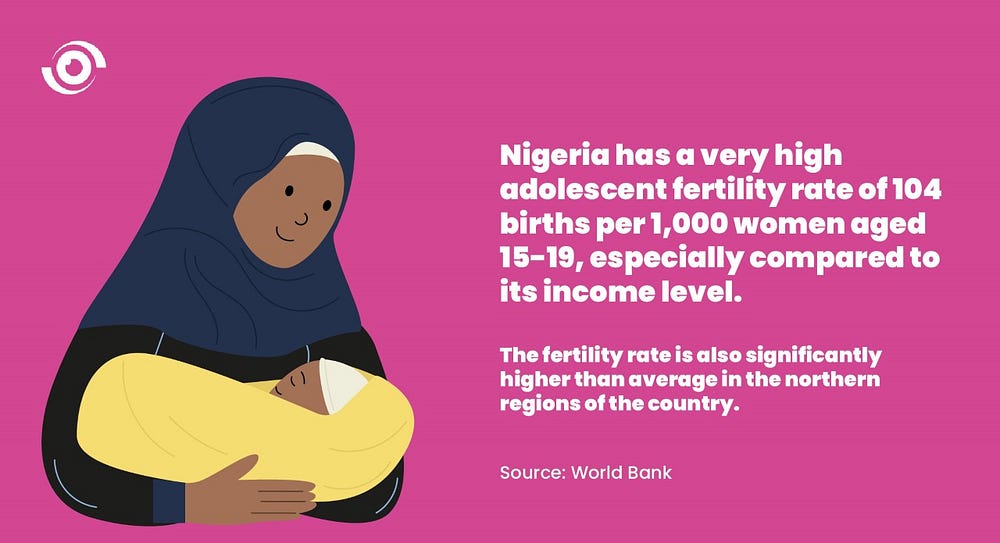
The House of Representatives committed to ensuring sustained engagement with the office of the Speaker of the House and other relevant committees within the House on fast tracking demographic transition in Nigeria. The next steps, which were presented by Honourable Henry Nwawuba, the Chairman of the House Committee on Legislative Agenda in a communique signed by key participants at the event are as follows,
- Prioritise the financing of identified human capital development interventions such as basic primary education, primary healthcare, and family planning in the budget appropriation.
- Legislate and finance compulsory secondary education for adolescent girls, which will be supported by innovative models and incentives, such as cash transfers.
- Expand the financing of technical and vocational education and training (TVET). This will close the gap between labour demands and skill shortages. Legislative action will also prioritise the creation of favourable policies, an enabling environment, and incentives for women economic empowerment and financial inclusion.
- Commit to protecting all girls from harmful practices such as child marriage and gender-based violence which jeopardises their lives and future.
- Support investment in research, development, and data generation that will provide evidence for informed interventions and programming.


